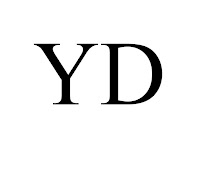
As I have taught over the years, I noticed a troubling trend with my students in their progress with piano lessons. We would start out with a beginners book and they would do fine for the first 10 pages or so and then the curriculum would jump and my students are stuck and frustrated. There is no slow gradual build up of concepts and there is not enough repetition to master every concept introduced.
Here are some tips for piano teachers facing the same problem:
1. Don't stick to the book.
Consider the book as your guide but supplement with a lot of printouts or other books to encourage mastery of a concept before moving on to the next one. If you have to, draw your own music. For example, start with writing letters for notes on lined music paper. Once the student masters the ability to follow the letters and match them to piano keys, substitute the letter C with the musical notation for middle C. Keep the rest of the song looking the same. Do a few different examples of songs with this. When they have mastered C, substitute an additional letter with notation, such as D. Continue in this manner to ensure mastery of notes. I would suggest one letter substitution each with for young students (3-7) and two letter substitutions for older students (8-11). In this case you will see that the slow method results in faster learning and mastery. This method is especially recommended for students with autism.
2. Provide many additional songs that demonstrate the concept you are working on.
Whether you are teaching new notes, rythm or technique, stick to that concept and provide a lot of material to practice on until you see that the student has mastered it and is comfortable moving on to a new concept. The importance of providing copious amounts of additional material is that students will get bored if they practice the same song over an over. Keep it interesting with different songs illustrating the same concept.
3. Use bigger notes and lined sheets.
I cannot tell you how many students jumped in their progress when I bought them piano sheet note books with extra large spaced lines and drew big fat notes. Some kids have eyesight issues that no one knows about yet. Others are so small that it's hard to see small notes so far away from them. You want to be able to show the difference between each note and in order to do that they have to be big.
-----------------------------------------------
Yeva is a Los Angeles piano teacher that teaches in student's homes and specializes in piano lessons for autistic students.
